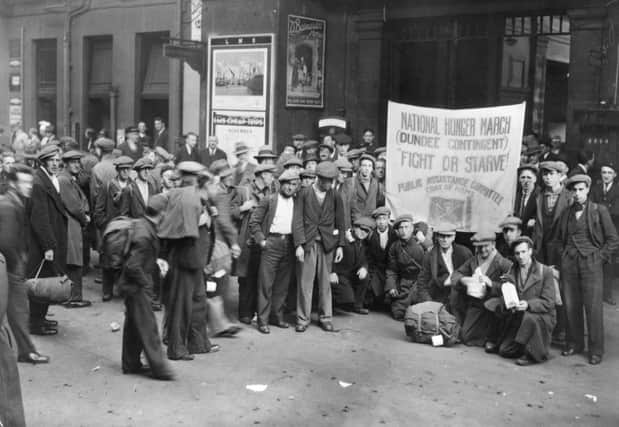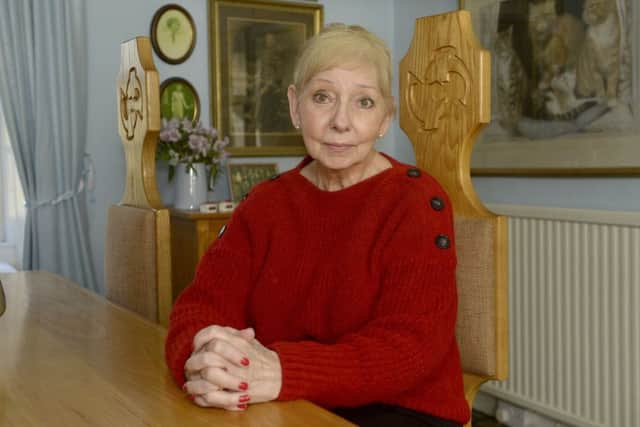Unemployment and poverty: how Scotland welcomed back its war heroes


But the men and women who received a heroes’ welcome very quickly faced the harsh reality of unemployment, poverty, sickness and slum housing.
Now ‘Aftermath’, a new exhibition opening next month, tells the story of the years between 1919 up to 1938 when politicians’ promises turned to dust and veterans went on hunger marches and resorted to writing hardship letters to regimental associations and the government pleading for money.
Advertisement
Hide AdLetters came from veterans of all ranks, including those who had received military honours, such as the Victoria Cross.


‘Aftermath’ opens on 30 March at the King’s Own Scottish Borderers (KOSB) regimental museum in Berwick-upon-Tweed, running until 11 November before touring Scotland and the UK.
Dr Yvonne McEwen, founder of Scotland’s War national project, and research fellow at the World War One research group at Wolverhampton University, who compiled the exhibition, said: “Wartime Prime Minister David Lloyd George promised a ‘land fit for heroes’ and ‘homes for heroes’. By the war’s end many people were cynical about politicians, but still hoped they’d come back to a better country after what they’d sacrificed.
“But by 1919, when the last troops returned, it became apparent there was not the level of work they’d hoped for. Many employers took on lower-paid workers during the war, and by 1920 the Depression set in and people were vying for jobs,” said McEwen who in 2016 established the charity Scotland’s War (1914-1919), which built on the work of a similar project funded by Edinburgh University which came to an end that year.
Extracts from the hardship letters include the following written by a private in the 2nd Battalion KOSB. Disabled with war wounds, he walked 165 miles from Glasgow to Darlington to find work, but was unsuccessful and penniless.


He wrote to his regimental association requesting “an emergency payment for lodgings but I am prepared to walk back to Glasgow”.
Advertisement
Hide AdAnother veteran wrote: “I have epilepsy due to a shrapnel head wound and work infrequently. I have an elderly mother to care for and I need funds for her nourishment.”
The post-war years also saw successive changes of government, the 1926 General Strike, high unemployment and hunger marches, including ones from Glasgow to Edinburgh with exhausted veteran marchers sleeping on Edinburgh’s Princes Street.
Advertisement
Hide AdMcEwen added: “We want ‘Aftermath’ to prompt the question ‘Did we really handle our returning ex-servicemen and women in the way we should?’. Any thinking politician would have asked ‘What is going to happen with this mass demobilisation?’
“At a human level, we’re talking about men and women returning from recent conflicts facing very much the same sort of problems.”
Sue Freeth, chief executive of Combat Stress, a veterans’ mental health charity, said: “Service-related trauma is as relevant an issue now as it was 100 years ago.
“Although most of today’s service personnel transition successfully from the military to civilian life, a significant minority develop mental health conditions such as anxiety, depression and post-traumatic stress disorder. Left untreated, this can have a devastating impact on veterans and their loved ones.
“Alongside mental health problems, the veterans we treat often have issues with substance misuse, physical health needs, financial hardship, and relationship problems.
“Our research shows, of the former servicemen and women we support, those in Scotland have higher levels of deprivation in income and employment.
“In the last ten years we’ve seen a 143 per cent increase in referrals, with veterans waiting on average more than a decade before seeking help.”